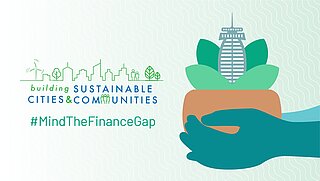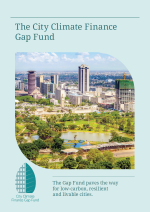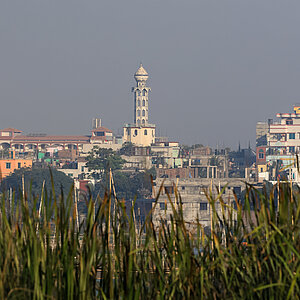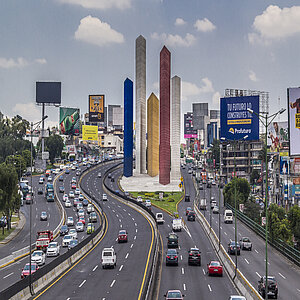City Climate Finance Gap Fund launched

The Gap Fund paves the way for ambitious infrastructure development for low-carbon, resilient and liveable cities in the Global South.
Currently, half of the global population lives in urban areas and by 2050, two out of every three people will live in cities. Cities account for about 75 per cent of the world’s carbon emissions. At the same time, cities are particularly vulnerable to the impacts of climate change. As a result, cities not only face the challenge to withstand climate change disruptions such as rising sea levels or extreme heat but also to protect our natural environment.
Many cities have developed plans to address these challenges. Unfortunately, they often lack critical resources and capacity to advance climate resilient and low-carbon infrastructure projects from an idea to a robust business case. The IKI supports initiatives like C40 Cities Matter to identify project ideas at the local level. However, there is the lack of support to further develop these projects. There are however, institutions like FELICITY or CFF that provide project support at a later stage.
A new City Climate Finance Gap Fund
On 23 September 2020, a new City Climate Gap Fund will be launched. The Gap Fund is an initiative of the governments of Germany and Luxembourg together with the Global Covenant of Mayors (GCoM), in partnership with several other key players in the field of climate finance (including C40, ICLEI - Local Governments for Sustainability and the Cities Climate Finance Leadership Alliance - CCFLA). The envisaged budget of at least 100 million Euro will unlock 4 billion Euro of investments to implement cities’ climate plans. The City Climate Finance Gap Fund is supported by Germany through the International Climate Initiative (IKI) of the German Federal Ministry for the Environment, Nature Conservation and Nuclear Safety (BMU) and the German Federal Ministry for Economic Cooperation and Development (BMZ). It will contain two pools of funding, one managed by the European Investment Bank (EIB) in partnership with Deutsche Gesellschaft für Internationale Zusammenarbeit (GIZ), and the other managed by the World Bank (WB).
The City Climate Finance Gap Fund is the first global fund dedicated to support cities in the very early stages of project development. It strengthens projects to the point where they are likely to receive further support from project preparation facilities and attract the interest of public and private financiers. It thus closes a currently underfunded blind spot that has undermined climate action. This will be key to the realisation of countries’ commitments to the Paris Agreement – their NDCs – and the Sustainable Development Goals.
The Gap Fund has three objectives to increase the pipeline of high quality and financially viable urban infrastructure projects in cities. It provides technical assistance and capacity building to turn climate-focused ideas into concrete urban project proposals. Furthermore, it helps these projects receive support from other project preparation facilities, which will help to find finance and get to full implementation. For more sustainability, it establishes a forum for exchanging ideas and best practices on early project preparation.
Cities and COVID-19
Cities play an important role in the COVID-19 pandemic. Poorly managed urban areas can contribute to the rapid spread of infectious diseases. In addition, there is evidence suggesting that poor urban air quality through traffic, waste, energy and industry increases the risk of spreading the pandemic faster.
Governments have rightly focused its early efforts in strengthening the health sector and mitigating the economic impacts of COVID-19 to households and firms. However, as countries gradually reopen their economies, there is a risk that focus on the pandemic will eclipse attention on climate change, which remains a threat to global well-being. The Gap Fund could contribute to ensuring that these choices will help cities recover from the pandemic while at the same time enhancing their climate resilience and retaining some of the benefits citizens have experienced from cleaner air and reduced pollution.
"Cities are key actors for addressing both the climate and COVID-19 crises", said Svenja Schulze, the German Federal Environment Minister, "but they can only fulfill their role with support by national governments. We have co-developed the City Climate Finance Gap Fund with both city networks and finance institutions to ensure that the Gap Fund indeed fills the gap to unlock ambitious investment for meeting climate and COVID-19 recovery targets at scale."
The link has been copied to the clipboard
Contact
IKI Office
Zukunft – Umwelt – Gesellschaft (ZUG) gGmbH
Stresemannstraße 69-71
10963 Berlin
Further information
Project funding: Sustainable Urban Development

Gap Fund brochure for download
World Bank Blog "Sustainable cities"
Cities are the hub of the global green recovery
Activating more private capital to make cities more sustainable













